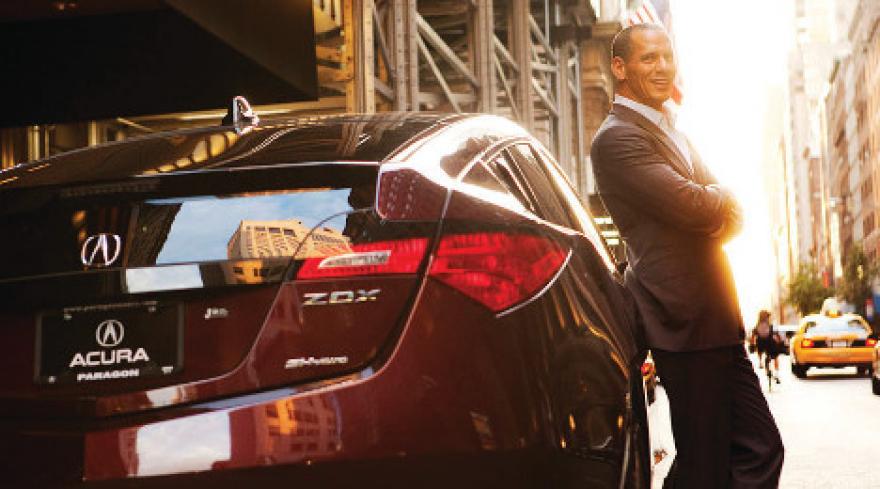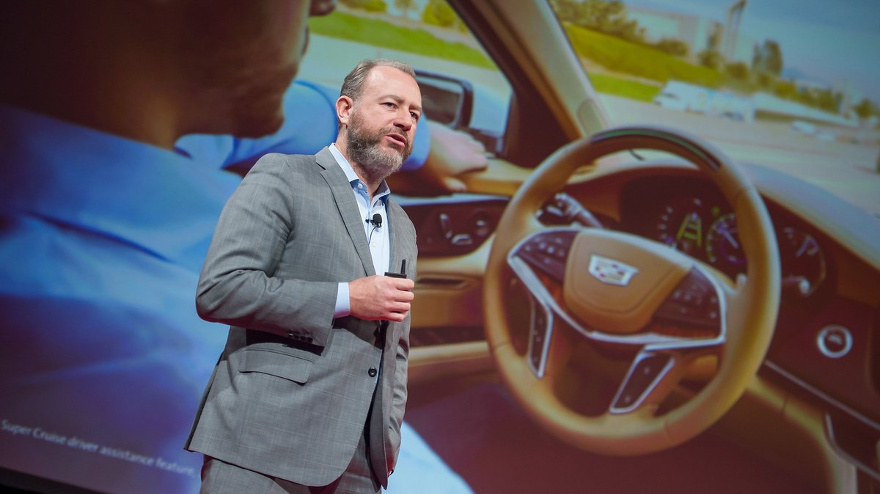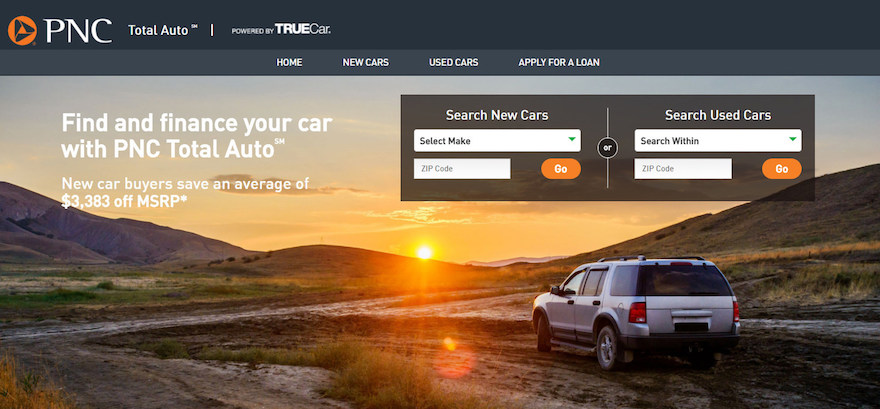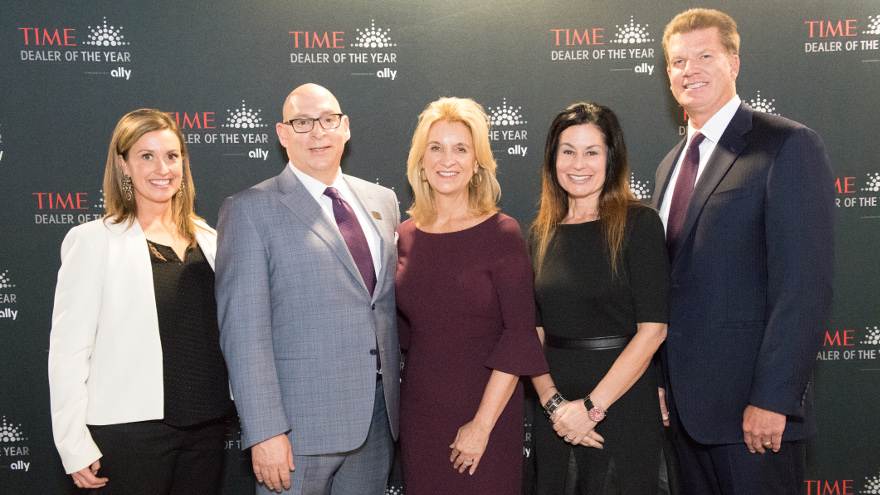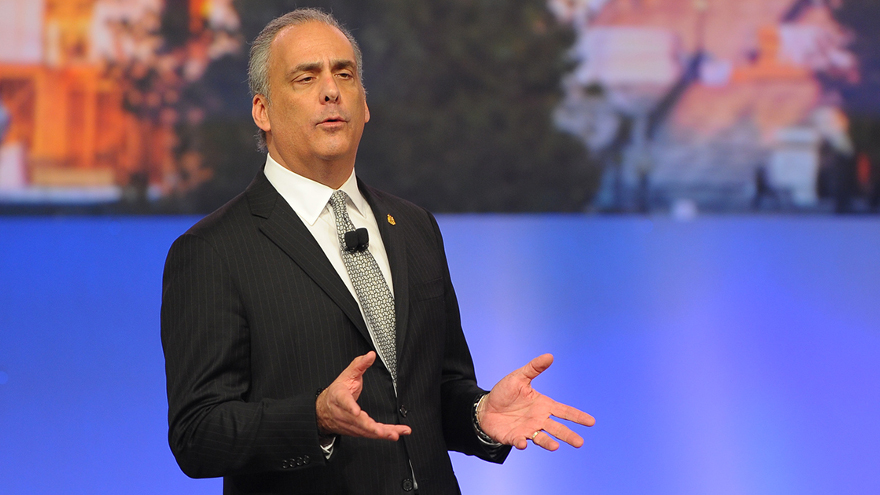Dominion Dealer Solutions announced during the recent 2018 NADA show the release of its new Dynamic Reports Portal for direct marketing.
The portal, which is designed to bring more relevant data to dealers, provides access to what the company described in a news release as the “four cornerstones of dealer management system-based marketing data”: service revenue, sales revenue, emails sent and email collection.
Dominion shared it designed the new portal to give clients a “dashboard view” of their data, as well as the ability to dive deeper when needed.
Each of the aforementioned data segments have their own widgets, along with top-level details for different campaigns. Through the main dashboard, dealers can also access detailed reports, view granular statistics and export data directly to their inbox.
“Our goal was to retain all of our previous reporting benefits, but present them to our dealers in a fast, cross-device format,” said Alan Andreu, vice president of product at Dominion.
The interface is based on extensive dealership testing and feedback, and it designed to bring the “essential dealership data” to the forefront.
Dealers can use dashboard reports to drill down to the customer and advisor levels, provide engagement, email collection and success reporting.
The Dynamic Reports Portal is accessible across all device types and is securely accessed via a password-protected log-in.
With conference season in full swing, the National Independent Automobile Dealers Association continued preparations for its big event this summer by aligning with a trio of service providers aimed at helping operators who do not have a direct connection to an automaker.
DriveItAway, the first company dedicated to equipping dealers with the tools to participate in the explosive growth of mobility as a service and shared mobility services, has joined with the association as NIADA’s latest National Member Benefit partner.
Solera Holdings, a provider of digital technologies that connect and secure cars, homes and identities, has teamed with the NIADA as a Bronze-level National Corporate Partner.
And PGW Auto Glass, one of North America’s largest auto glass distributors, has joined with the NIADA as a new National Member Benefit partner.
While Las Vegas hosted National Automobile Dealer Association festivities this past weekend, all of these moves were made by NIADA as the association continues to prepare for the 2018 NIADA/NABD Convention and Expo at Rosen Shingle Creek in Orlando, Fla., June 18-21. For more information about the 2018 NIADA Convention and Expo or to register, visit www.niadaconvention.com or www.bhphinfo.com.
The event is all about helping dealers advance their businesses, like the relationship with DriveItAway.
Identifying a need for automotive retailers to quickly ramp up their experience and business revenues in the rapidly emerging world of car sharing and subscription services, DriveItAway will offer its turnkey platform to NIADA members in an industry partnership.
DriveItAway said it will provide NIADA members with all the tools to offer a subscription model Car Sharing platform, including self-service software, all insurance coverages and training to allow dealers to quickly and profitably begin to add a cents-per-mile model to the traditional one car sale/one profit scenario.
Every association member using DriveItAway’s turnkey program also can immediately offer the Lyft Your Down Payment program, which provides new Lyft drivers with immediate temporary vehicles to drive at a daily or weekly rate so they can raise money for a down payment to buy the vehicle of their choice — offered by the participating dealership.
“Ride sharing companies such as Lyft are always recruiting, in volume, for new drivers, and many potential new drivers lack vehicles or appropriate vehicles to drive,” DriveItAway founder and chief executive officer John Possumato said. “While there are other temporary rental vehicles available, we have found many current and prospective Ride Share drivers want to own the vehicle they drive and are looking for a path-to-ownership opportunity.
“Conversely, dealers are always looking for new buyer prospects, and many could close more deals if prospects had just a little more cash down with a quick and direct method to raise that money,” Possumato continued.
Possumato insisted DriveItAway’s program “beautifully merges those two needs” by enabling dealers to provide temporary vehicles to new Lyft drivers, who can then come back to the dealership with the cash to buy a vehicle.
“We even throw in a little incentive cash to the drivers to add to their down payment when they achieve a certain number of rides — if they buy a vehicle from that dealership,” Possumato said.
“We are thrilled to kick off this first of its kind program with NIADA, a clear win for dealers by expanding the range of qualified buyers and a testament that NIADA is an organization that best prepares its members for doing business today — and tomorrow,” he went on to say.
NIADA senior vice president of member services Scott Lilja said working with DriveItAway gives NIADA members a new turnkey profit center that also leads to more vehicle sales and expands members’ role in the new Shared Mobility environment.
“This is a win-win-win for our members, their customers and ride sharing companies such as Lyft,” he said. “Plus, entering in the mobility as a service business through DriveItAway gives industry-leading dealerships valuable and profitable experience in that expanding business sector of transportation and comprehensive preparation to enable our members to embrace many future customer-need scenarios.”
Solera joins with NIADA as National Corporate Partner
Solera Holdings, a provider of digital technologies that connect and secure cars, homes and identities, has teamed with NIADA as a Bronze-level National Corporate Partner.
Solera’s offerings manage risk and assets for the digital world of today, creating a digital marketplace that empowers customers to manage the entire life of the vehicle from a single platform.
Solera processes more than 300 million digital transactions annually for some 235,000 partners and customers in nearly 90 countries.
Solera companies include Identifix, which serves more than 250,000 automotive technicians and shop owners in the U.S., Canada and Latin America through its online Direct-Hit system, Virtual Technician Service, Direct Market and Direct-Shop shop management system; and AutoPoint, which can combine marketing strategies, service execution and titling tools to create a single, comprehensive technology platform aimed at transforming the customer experience from end to end.
“Solera is a leader in the insurance claims management, digital marketing, electronic title/registration and vehicle service repair data industries,” Lilja said. “It delivers very innovative, high quality and impactful solutions to assist our member dealers in selling and servicing more vehicles profitably.”
For more information, visit www.autopoint.com and www.identifix.com, and for more on Solera, visit www.solera.com.
PGW Auto Glass on board as NIADA National Member Benefit Partner
PGW Auto Glass, one of North America’s largest auto glass distributors, has joined with NIADA as a new National Member Benefit partner.
PGW Auto Glass offers a wide selection of glass repair and replacement products at more than 120 locations, including glass, repair, sundries and replacement support products, as well as distribution service for the automotive industry.
NIADA members will be offered special pricing on auto glass and select supplies through the partnership and will have access to PGW Auto Glass’ e-ordering system and Sundries Help Desk through its call center.
PGW Auto Glass said it also plans to offer exclusive discounts to NIADA members on chip repair kits.
“We are extremely pleased to have the number one glass distributor in the U.S., PGW Auto Glass, come on board as an endorsed NIADA National Member Benefit partner,” Lilja said.
“With more than 8,000 customers, PGW is a top supplier to all of North America’s national and independent glass installers,” Lilja continued. “This is an immense opportunity for our members to enjoy 100 percent of the profit from glass replacement work versus outsourcing, while enjoying substantial cost benefits in the process.”
Dealer groups with multiple rooftops can give owners scale for certain efficiencies, but they sometimes present problems for potential buyers.
Roadster is trying to eliminate possible shopping issues so groups can turn metal quicker — and possibly for more gross profit — no matter which dealership might have a vehicle on its lot.
Roadster launched its new Express Marketplace solution for dealer groups in conjunction with NADA Show 2018 in Las Vegas last week.
Similar to Roadster's Express Storefront e-commerce platform launched in 2016, its new offering can allow dealers to put their entire car-buying process online but is specifically designed to meet the merchandising needs of dealer groups, in particular.
While Express Storefront is tailored for individual stores, Express Marketplace can give car shoppers access to a dealer group's full inventory so they can easily cross-shop across all the brands within a group.
“This allows dealer groups to have a fully commerce-enabled website for their dealer group so that they can pool their marketing dollars and drive efficiency through that site at the dealer group-level. And then have each piece of inventory go to the individual dealership when somebody is ready to transact,” explained Roadster chief marketing officer Michelle Denogean during a phone demo of the new solution for Auto Remarketing led by chief executive officer Andy Moss.
With Express Marketplace, dealers can merchandise all their inventory in one place and provide the same commerce capabilities across each vehicle.
The new platform's deal-building tools can allow customers to desk their own deal, then pick up where they left off on a dealer’s Express Storefront or physical location.
“Instead of being just for store X, Y and Z, this site is really aimed at the group where you can literally have inventory from across all 5, 10 and 30 brands — all in one place,” Moss said.
“This process is actually happening with the individual dealerships, but you’re initiating it from the actual dealer group site, providing a consistent experience across each of their stores that are a part of the dealer group.”
Moss explained that the platform is ideal for dealer groups that have 10 to 30 stores in a specific geographic location and want to offer consumers a modernized retail experience.
“The product is focused on the dealer groups because there's lots of groups that have close proximity to many of their stores and this gives them the opportunity to refocus their advertising efforts on a regional basis at the group level — as opposed to on a store-by-store case,” Moss explained.
“We see a lot of demand for that piece of it.”
Dealer groups can choose to show inventory within a particular area, or expand to reach consumers more broadly.
“It also works pretty well for the independent’s that want to provide commerce capabilities for their full inventory of used cars across all of their locations,” Moss added.
Five key retailing solutions provided by Express Marketplace include:
- Multiple payment options
- Easy trade valuation
- Service and protection plans
- Optional accessories store
- Secure credit application
Moss said, “Most dealerships are missing the opportunity to upsell accessories as part of the deal and in a very margin-constrained environment, every dollar makes a difference to whether that deal is profitable or not.”
As customers desk their deal, Express Marketplace can allow dealer groups to introduce them to a range of add-ons that they can purchase as part of their deal without overwhelming them.
“On the service and protection plan side, across the board, we’re hearing that the back-end gross associated with these types of transactions is better,” Moss explained. “It partly is because you get several bites at the apple for presenting products.”
One of Honda’s leading certified pre-owned dealers — New York’s Paragon Honda — is making moves it says are to keep up with evolving customer expectations.
In partnership with its marketing agency Team Velocity, the dealership worked with Google to develop a service and maintenance app that aims to remove friction from the service bays.
To accomplish the goal of relieving pain points in the service department, the dealership took a three-step approach.
First, Paragon Honda knew to truly tackle the pain-points involved in vehicle service, they needed to provide a 24-hour service for their clients that can’t afford to not have their vehicle for more than one day. The new service allows customer to request to have his or her vehicle picked up, serviced and returned within 24 hours. This also means the customer doesn’t even have to go into the dealership to get their car serviced.
Secondly, Paragon Honda tested new technology to make it simpler for customers to schedule service and maintenance, becoming the first dealer to build an app for the Google Assistant. Soon, Paragon Honda customers will be able to schedule service such as routine maintenance, oil changes and tire rotations using their voice through Google Assistant.
For example, a Paragon customer can use Google Assistant to connect them to the Paragon Honda app that can then help them book an appointment for a car service.
The third wheel of their effort to improve customer satisfaction in the service bay includes optimizing marketing and measurement. Paragon Honda ramped up its investment in search optimization in an effort to be one of the first results for searches like “Honda oil change” and Honda maintenance” in the New York market. The dealership contributes the strategy to growing its service repair orders by five times in the last 12 months.
In a recent Think with Google article, Brian Benstock, general manager and vice president of Paragon Honda, said, "Our customers want to live their lives. They don't have the time to drive out to the dealership, drop off their car, and wait for it to be serviced. Technology has changed their expectations, and we knew we needed to change our approach to service and marketing in order to meet those.”
General Motors president Dan Ammann acknowledged the situation involving overall off-lease volume in the wholesale market and how the automaker and its captive — General Motors Financial — set residual values created some notable stress.
“We were just saying last night that when we were together a year ago, we were quite concerned, but we feel a lot better about it now,” Ammann said during a conversation with industry media after his opening keynote presentation during last week’s Vehicle Finance Conference hosted by the American Financial Services Association.
Ammann then differed to the executive seated next to him inside a marble-clad boardroom at the Bellagio in Las Vegas to elaborate on why GM’s assessment of the used-car market is less concerning now. That colleague was GM Financial president and chief executive officer Dan Berce, who took his turn on stage during a panel discussion later at AFSA’s event.
“Obviously at this time last year, used-car prices were down in the neighborhood of 7 percent year-over-year,” Berce began. “Now more recently, year-over-year stats have been flat. That certainly doesn’t mean that the residual-value matter is behind us because there are still going to be a lot of off-lease vehicles this year and through 2019 before supply starts to flatten out.
“Residual value management is really a joint effort between GM and GMF,” Berce continued. “GM has taken some steps to strengthen residual values with their management of inventory and management of their fleet sales versus retail. Their incentive spend has been favorable to residual values.
“It really starts from the OEM, but from a finance company standpoint, we do all of the remarketing, whether it’s off-lease, company cars, fleet,” Berce went on to say. “We’ve got good technology with the combination of online sales and physical auctions. We have a pretty good optimization model where we can figure out what markets the cars should go to, what the best price point is.”
Of course, after many of those vehicles navigate their way through the remarketing channels, they end up at GM franchised dealerships as certified pre-owned models. And GM has had a robust start to 2018 with its CPO sales.
In January, Chevrolet, Buick and GMC stores turned a total of 27,635 CPO units, according to information compiled and shared by Autodata Corp. That January figure represented an 8.2-percent lift year-over-year.
Then in February, Autodata indicated GM’s certified program registered 29,229 retail sales, marking a 4.5-percent improvement year-over-year.
And also of note, Cadillac CPO sales — which are associated with a separate program — is building off a record year in 2017 when the brand turned 48,245 units. After compiling a 37.9-percent sale jump for all of 2017, the luxury badge has started each of the first two months of 2018 with double-digits gains, according to Autodata.
Likely all of those encouraging trends are why Ammann, Berce and the GM and GM Financial teams are upbeat about the used slice of its broad operations.
“CPO is an important part of the residual value strategy. It’s a vehicle that the consumer prefers in most cases because of reliability and the OEM standing behind it. That’s certainly good from a residual value perspective to have a good CPO program,” Berce said.
As mentioned, Ammann delivered the opening presentation of AFSA’s annual gathering of auto finance leaders. He discussed not only GM’s current state of affairs but also how the automaker is part of the industry-wide advancement in technology with the end goal being autonomous vehicles. For example, in just a few months, GM plans to release a vehicle designed without a steering wheel.
James Treece of Automotive News asked Ammann about how GM is handling the conundrum of consumers often waiting for at least the second generation of a technologically advanced vehicle before taking delivery and how that condition might impact leasing and eventually the certified prospects for the first iteration of a model.
“That’s a very good question,” Ammann began. “One of the big changes that’s happening right now is how cars are upgradable and technology is upgradable. We will be adding features over time.
“We’ve gone from this historical mindset that’s perfectly logical that you buy a car and it depreciates, to now you buy a car and it can get better over time, more features, more capability with updates,” he continued. “That’s a very significant change and arguably could have a very positive effect on residuals and CPO.”
PNC Bank and TrueCar have teamed up to offer consumers a new digital auto shopping experience.
PNC Total Auto, powered by TrueCar, was launched Tuesday, a tool which the companies shared lets auto shoppers “browse, borrow, buy in three easy steps.”
The end-to-end digital car buying experience is designed to help consumers better understand how much a car will cost before they go to the dealership — ending up more confident in completing their vehicle purchase when they get to the showroom.
Shoppers can use the tool on their computers, tablets or mobile devices to shop for cars from their local dealers, as well as narrow their search by feature and price.
They can also apply for financing, and if approved, receive a check to bring into the dealer the very next day.
"We recognize that the negotiating and car buying process can be stressful," said Lakhbir Lamba, head of retail lending products at PNC Bank. "PNC Total Auto better prepares customers to make informed shopping and purchasing decisions by providing a fair, comparable price and a simplified process."
The new digital auto shopping platform combines TrueCar search and pricing with PNC's "Check Ready" program.
Through Check Ready, if a customer’s application is approved, they are authorized to purchase a car for up to a certain amount, PNC explained. But the check doesn’t include a final price or a dealer name, which gives the shopper flexibility to shop around.
The Check Ready program can be used for contracts between $7,500 to $50,000 on vehicles 8 years old or newer. PNC shared they can assist customers with auto loans larger than $50,000 through other products.
Both the National Automobile Dealers Association (NADA) and the American International Automobile Dealers Association (AIADA) welcomed their respective new chairman for 2018 this past weekend.
The new NADA chairman and president of Extreme Dodge-Chrysler-Jeep-Ram in Jackson, Mich., Wes Lutz, outlined his goals and focus areas for the coming year at NADA 2018; while AIADA named its 2018 chairman — Salt Lake City, Utah, dealer Brad Strong — at its 48th Annual Meeting and Luncheon.
NADA Chairman outlines goals
Lutz, during his first official speech at 2018 NADA chairman, focused on how technology is changing the industry — for the better — as well as his priorities for the coming year.
“It’s true, technology makes sharing a car more convenient than ever. But, what the naysayers forget, is that technology also makes owning a car better than it used to be,” said Lutz, who has been a dealer since 1976. “Auto dealers are going to sell the vast majority of electric cars sold … The automobile is the most exciting platform for innovation in the next 100 years.”
Lutz explained he plans to advocate for new-car dealer concerns within the industry, as well as in the legislative and regulatory sectors. Lutz said he will also encourage dealers to continue adapting to future retailing challenges.
“Just because a new system pops up, doesn’t mean the ‘old one’ is dead. Just because technology changes, it doesn’t mean that a car’s usefulness is gone. At almost every turn, dealers have faced challenges—some major ones. But our troubles didn’t define us. How we responded to them did.”
Earlier this year, he discussed with Auto Remarketing this very topic of change. Ridesharing, in particular, was one shift he addressed.
“I think a variety of options are going to coexist. The future, in my opinion, is going to be a combination of vehicle ownership and ride sharing,” he said. “It’s not going to be one or the other.”
Lutz explained at the NADA conference that auto dealers “have a role to play in the future of the industry,” in terms of investing in both new franachises and facilities, as well as new technologies.
As for NADA’s role, Lutz said, “NADA will continue to fight for you in our nation’s Capital —in the face of regulatory and legislative burdens. We will continue to reach out to manufacturers and build strong relationships moving ahead.”
Lutz served on NADA’s board of directors until 2004, and then returned in 2017 as chairman of the association’s regulatory affairs committee. He also served as president of the Michigan Automobile Dealers Association in 2012. Most recently, Lutz served as NADA vice chairman under outgoing chairman Mark Scarpelli.
New AIADA chairman focuses on threat of ‘trade wars’
AIADA’s new chairman is the co-dealer principal of Strong Volkswagen, Audi Salt Lake City and Porsche Salt Lake City.
Strong, a third-generation dealer, runs the stores with his brother, Blake — two of which have been in operation since the 1940s. The pair opened their new downtown VW store last year.
At the AIADA event, Strong focused on the role dealers play in the U.S. economy, as well as what they need to do to “defend their businesses” — with a particular focus on trade wars in light of recent news stemming from the Trump Administration.
"We need to work with AIADA to hold congressional visits at our dealerships where we can share our investment numbers and our employment stats,” said Strong. “That's the best shot we have at convincing lawmakers that trade wars aren't abstract fights between nations and political parties. Trade wars have real consequences, and unfortunately for us, they can have real casualties.”
In fact, Strong, who has served on AIADA's Board of Directors since 2009, focused on the threat of new trade and tariff policies and what this means to international nameplate dealers in a recent column that ran on Auto Remarketing.
"Washington has no sense of how price sensitive this industry is, and just how easily their tax and tariff schemes could send annual auto sales into a tailspin, costing thousands of jobs," Strong said.
For the second time in the past five years, a dealer from the Tar Heel State has claimed one of the highest honors for a franchised operator.
Jack Salzman, owner of Lake Norman Chrysler Dodge Jeep Ram in Cornelius, N.C., was named the 2018 TIME Dealer of the Year over the weekend during the 101st annual National Automobile Dealers Association (NADA) Show 2018 in Las Vegas. Salzman was selected for the prestigious award from a field of 47 dealer nominees from across the country in recognition of his many business accomplishments and community contributions, which focus on helping women, children and animals.
“Jack Salzman has made giving back a central part of his personal and business philosophy,” said Tim Russi, president of auto finance for Ally, which has been the exclusive sponsor of the program for seven years. “It is an honor to recognize him as the 2018 TIME Dealer of the Year for all he has done to invest in his community and his dealership team.
“We’re proud of the hard work and generosity shown by each of the nominees and finalists, they inspire us with their dedication to this business and to giving back to their communities,” Russi continued.
The other regional finalists for this year’s award were:
— Brent Brown, president of Brent Brown Toyota in Orem, Utah
— William Fenton, president of Toyota of Keene in East Swanzey, N.H.
— Wally Sommer, president of Sommer’s Subaru in Mequon, Wisc.
Ally will provide $10,000 dollars to the nonprofit organization of Salzman’s choice. In addition, $5,000 will be donated to the charitable organization selected by each of the three finalists and the state Automotive Trade Association Executive (ATAE) who nominated Salzman. In recognition of all the dealers nominated for the award, Ally gave $1,000 to the charity of choice for each of the 47 nominees. For more information about the nominated auto dealers, including their philanthropic contributions and achievements, visit AllyDealerHeroes.com.
TIME Dealer of the Year, which is presented by TIME magazine’s owner, Meredith Corp, is a coveted award in the auto industry, with recipients among the most successful auto dealers in the country who have also shown enduring dedication to community service. Salzman, 55, was chosen to represent the North Carolina Automobile Dealers Association in the 49th annual TIME Dealer of the Year competition. Only a fraction of the 16,500 franchise dealers nationwide are nominated for the award each year.
Back in 2013, Michael Alford, who is president of Marine Chevrolet Cadillac in Jacksonville, N.C., received the honor. Now a dealer near Charlotte is this year’s winner.
“The most rewarding part of my retail automotive career has been hiring great people and investing in their future,” Salzman said. “We pride ourselves on searching out quality employees and providing them with the tools and support they need to grow from entry-level jobs up to top management positions within the company.”
Salzman graduated from Riverview High School in Riverview, Fla., and went on to earn a degree in business administration from Auburn University and a J.D. from the Shepard Broad College of Law at Nova University, now Nova Southeastern University, in 1989.
Rather than working at a law firm after graduation, Salzman decided he wanted to own his own business and started a cellular phone agency. After partnering with a local car dealership on a promotion for the agency, the dealer hired Salzman as a sales manager, and he has been in the auto industry ever since. Today, he owns two Chrysler, Dodge, Jeep and Ram dealerships in North Carolina located in Cornelius and Gastonia.
Salzman’s hiring practices earned Lake Norman Chrysler Dodge Jeep Ram the 2012 Champions of Diversity award from the Lake Norman Chamber of Commerce.
“We have always sought out great employees regardless of gender, race, religion, sexual orientation, etc.,” he said. “As a result of this philosophy, we have been rewarded with extremely low turnover and incredibly caring employees, whom we are able to continually promote to new positions that further their careers.”
In his community, Salzman is committed to giving back. He is a contributor to the Humane Society of Charlotte, as well as a founding board member of Lake Norman Humane. He also supports Lake Norman Lucky Cats, which provides trap-neuter-return services, as well as Holly’z Hope, an organization that helps unchain dogs by building fences for homeowners in need.
“When I purchased the dealership in 2003, my wife and I decided that we wanted to focus our philanthropic time and attention on three areas: animals in need, children in need and women in need,” he said.
Salzman is a longtime supporter of The Dove House Children’s Advocacy Center in Statesville, N.C., and Pat’s Place Child Advocacy Center in Charlotte; as well as Amy’s House in Lincolnton, N.C., and The Shelter of Gaston County in Gastonia, which both serve battered women and children. Salzman also supports Make-A-Wish; Big Brothers Big Sisters; Habitat for Humanity; Susan G. Komen; American Cancer Society; and many other local groups.
Salzman was nominated for the TIME Dealer of the Year award by Robert Glaser, president of the North Carolina Automobile Dealers Association. He and his wife, Robin Smith-Salzman, have three children and six grandchildren.
The finalists from each of the four NADA regions and the national Dealer of the Year were chosen by a faculty member panel from the Tauber Institute for Global Operations at the University of Michigan. The award is sponsored by TIME in association with Ally Financial, and in cooperation with NADA.
From Washington, D.C., to Walla Walla, Wash., Mark Scarpelli simply wants a retail environment where regulations do not inhibit dealerships from delivering vehicles their customers can afford and enjoy.
In his final remarks as 2017 chairman of the National Automobile Dealers Association, Scarpelli saluted franchised dealers for their successful advocacy efforts on Capitol Hill fighting to preserve what the associations believes is affordability for vehicle buyers at every turn.
“Vehicle affordability is the air we breathe. Affordability is everything. Americans need cars — affordable cars — more than ever,” Scarpelli said over the weekend in keynote remarks at NADA Show 2018 in Las Vegas. “If there’s one group that got that message loud and clear, it was the Consumer Financial Protection Bureau.”
“We stood up for our business model, for common sense and for our customers’ right to save money when they buy a car,” Scarpelli said. “And I’m proud to tell you that we stood our ground, and we prevailed. This was a great victory for NADA and for our customers.”
In 2013, the CFPB issued an auto finance guidance that threatened to eliminate a dealer’s flexibility to offer consumers discounted rates on vehicle installment contracts, according to NADA.
“We knew something that everyone else failed to see: Consumers won’t be buying cars tomorrow if they can’t afford them today,” Scarpelli said. “That’s why NADA fought for consumer affordability at every turn and throughout the year.”
Scarpelli, president of Raymond Chevrolet and Raymond Kia in Antioch, Ill., and co-owner of Ray Chevrolet and Ray Chrysler-Jeep-Dodge-Ram in Fox Lake, Ill., said NADA went on offense again to stop overly broad recall legislation.
“This legislation would have created a consumer trade-in tax for every recalled car on the road – even the ones with only minor defects like a peeling sticker,” he added. “We averted legislation that could have cost consumers on average $1,200.”
One of NADA’s biggest challenges was tax reform, which again mobilized NADA’s grassroots efforts, Scarpelli said.
The bill, which was signed into law in December 2017, preserved 100-percent deductibility on floor plan loans, increased the estate tax exemption and preserved both the LIFO accounting method and advertising deductibility.
“The stakes for our businesses are enormous: When taxes increase, jobs at dealerships decrease. Our capital investments decrease, and prices for consumers increase,” Scarpelli said.
“If we had not preserved floor plan deductibility, a lot of dealerships would be paying more in taxes for years to come. Many would hope to simply break even. Many more would suffer crippling losses. Because the original tax bill slashed interest deductibility by 30 percent,” he went on to say.
On the industry affairs front, Scarpelli, over his term as chairman, said he made it his personal mission to level with automakers concerning the “elephant in the room, also known as stair-step incentive programs.”
“Make no mistake, dealers are proud to work with our manufacturers. We value our brands and our integrity above all else. So, if any factory program runs counter to that we shouldn’t use it,” he said.
“Dealers and automakers can have the same goal. We just need to go about it in the right way. Let’s sell our inventory in large volumes. Let’s do it at competitive prices. Let’s put a great customer experience first, because if we do that the numbers will fall into place,” he added.
SiriusXM has launched a new aftermarket connected car solution for dealers and their customers, developed by its company — Automatic Labs.
The solution delivers connected vehicle service at a cost SiriusXM shared comes in as low as $40 per vehicle, including the device and introductory 6-month subscription.
On top of providing features to drivers like crash alerts and vehicle health and performance monitoring, it also gives dealers the ability “to maintain a connection with their customers long after the initial vehicle sale,” the company shared.
The technology, which Automatic will be demonstrating at the SiriusXM booth at the 2018 NADA Show in Las Vegas, also serves to encourage drivers to return to the dealership for their service needs through its Connected Maintenance feature. This gives dealers the ability to send service reminders and maintenance information, vehicle-specific recall notifications and more, directly to a customer’s smartphone.
And drivers can use the Automatic mobile app to book service appointments and receive estimates from the dealership where their car was purchased.
Automatic will also be launching a new 4G hardware device, which will be available for distribution this summer.
Some of the features Automatic delivers to shoppers are as follows:
- Crash Alert: Detects when a serious collision occurs and enables trained responders to contact you, send emergency services and contact a driver’s emergency contact.
- Real-time vehicle location monitoring and sharing: Shows where your car is parked in a crowded lot, and can keep you connected with family out on the road.
- Vehicle health and performance monitoring.
- Direct recall notifications and service reminders: Gives you the ability to book service appointments with your dealer with a few simple clicks.
- Integration with smart home devices: Open your garage door, adjust your thermostat and turn on house lights on your way to or from home.
- Roadside assistance: Sends towing and repair services to your exact location when help is needed. (available summer, 2018)
“We are excited to be entering into this new phase of development for Automatic. Our new series of products offer cutting edge safety and convenience services that consumers are asking for, and drives key first and future service traffic right back to a dealer’s store,” said Stewart Lyons, senior vice president of emerging business at SiriusXM.
“SiriusXM has a long and successful record of working with automotive dealers. As we continue to enhance our connected vehicle services and products, we’ll deliver even more value to them and their customers,” he continued.




